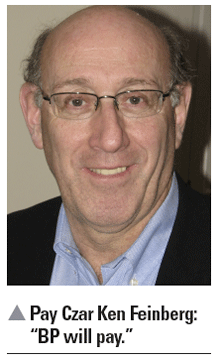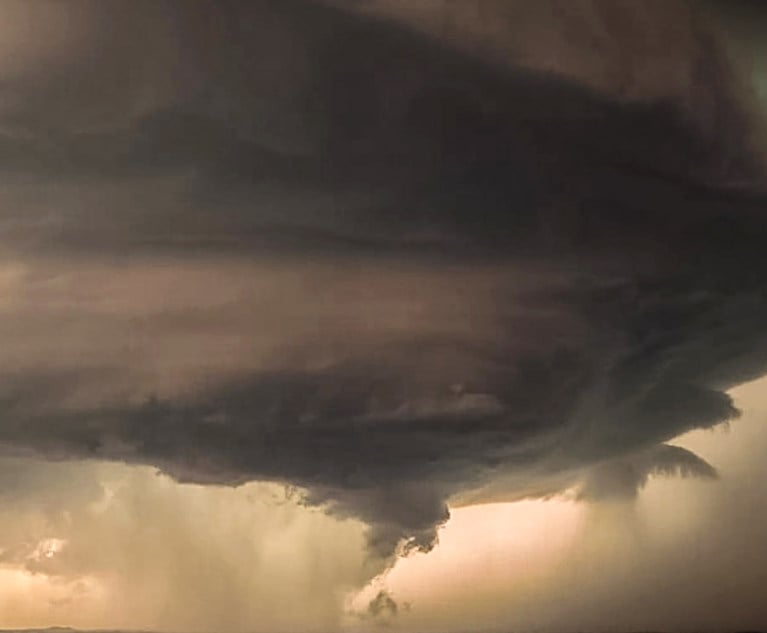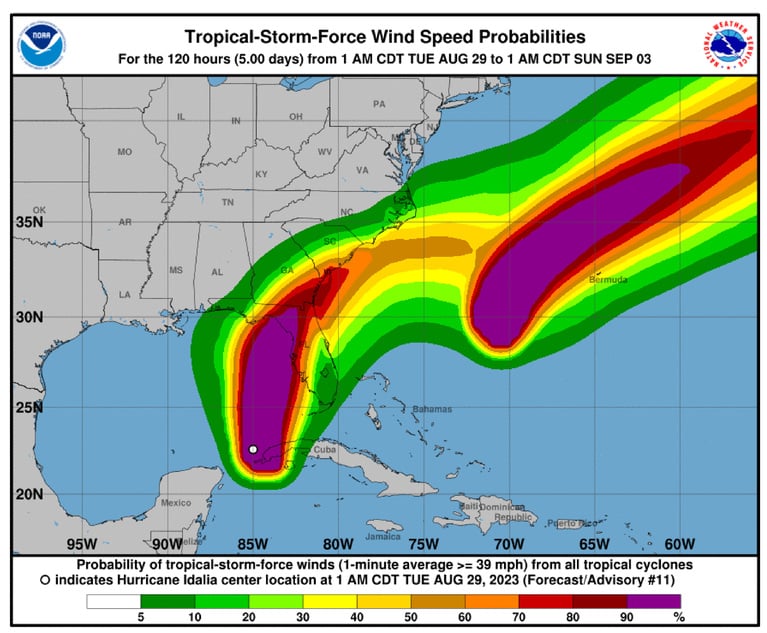 When Deepwater Horizon exploded on April 20, 2010,millions of gallons of oil seeped into the Gulf of Mexico, creatingthe largest manmade catastrophe since the September 11, 2001terrorist attacks. The spill also set in motion events the claimindustry had not previously navigated. President Obama stepped in,advising BP to hire a third-party administrator (TPA). PresidentObama then appointed Ken Feinberg as head of the $20 billion BP oilspill compensation fund.
When Deepwater Horizon exploded on April 20, 2010,millions of gallons of oil seeped into the Gulf of Mexico, creatingthe largest manmade catastrophe since the September 11, 2001terrorist attacks. The spill also set in motion events the claimindustry had not previously navigated. President Obama stepped in,advising BP to hire a third-party administrator (TPA). PresidentObama then appointed Ken Feinberg as head of the $20 billion BP oilspill compensation fund.
The Paymaster Revealed
|So just who is Ken Feinberg? Best known for heading the $7billion September 11th Victim Compensation Fund of 2001, Feinberghas handled various emotionally charged crises, including theVirginia Tech shootings. More recently, he was tasked withdetermining salaries for the top 25 executives of seven differentfirms that received large amounts of TARP funds during the currentfinancial upheaval. Feinberg's other credentials include workingwith Senator Edward M. Kennedy on the Senate Judiciary Committee,clerking in the New York State Court of Appeals, and eventuallyworking at the U.S. Attorney's office.
|Feinberg's experience mediating serious conflicts spans 25years. His first case was a class-action law suit against AgentOrange. The suit involved more than 250,000 Vietnam veterans andhad lingered in the courts for years. In fact, more than eightyears passed without resolution. Nevertheless, Feinberg wassuccessful in getting the case settled for $180 million in aboutsix weeks.
|Following the attacks on September 11, 2001, Congress signed theAir Transportation Safety and System Stabilization Act that fundedand created the September 11th Victim Compensation Fund. Feinbergbecame the paymaster of the fund, which was established to providetax-free money to victims and their families.
|So what makes Feinberg capable of managing billions of dollarsin funds? How will he work with those affected by the spill tosettle claims quickly and appropriately? This is what welearned.
|Medina: Mr. Willis said you regardedthe BP claim-paying process as "sufficiently efficient" in ameeting between the two of you. Is that still thecase?
|Feinberg: For the most part. They deservecredit for what they have done, but it is not efficient enough. Theprocess needs to be quicker.
|Mr. Willis also said you were critical of BP's paymentof business claims. Have measures been initiated to changethis?
|Yes, we are currently making changes to improve the processwhile creating mechanisms to put into place so that the payment ofclaims to businesses is more efficient.
|BP agreed to establish a $20 million escrow account. Hasthis ever occurred before?
|Not that I am aware of; this money was actually taken out of thehands of BP and is cosigned by the Federal Government. This hasnever happened before.
|What differences exist between paying oil spill-relatedclaims versus those experienced from the 9/11 fund?
|This is very different. In the September 11th catastrophe, wewere dealing mainly with the loss of lives and traumatic injuries.Although there were deaths associated with the original explosion,this tragedy is more about the loss of property, loss of income,and the environment. The other major difference is that thestructure and process had already been established by BP before Iwas called in. Usually, I begin from scratch to get the processgoing.
|Who will work for you on this project? Will you hirecontract or independent adjusting companies?
|Right now, we are going to use the people that BP has contractedwith and put into place. If we need more [personnel], then we willsimply add to the resources that they are using now. (*Editor'sNote: BP is currently using Worley Catastrophe) I am sure thatwe will add the staff as we need to in the future as we improve theprocess.
|It is widely known that the Obama administrationappointed you to this position. Do you think that you are viewed asan independent third party?
|Absolutely, I do.
|How long do you think this process willtake?
|I would say three years.
|Do you think that it is a real possibility that BP willnot be able to pay all of the claims, or that it could essentiallyrun out of money?
|I hope not! That would be a real shame for the people. In orderfor this process to work, BP must thrive and remain strong.[Therefore], it would be a tragedy for BP to fail. The [company]must succeed in order to make sure that everyone gets paid.
|How closely will you continue to work with Darryl Willisand BP?
|We need to be able to work together. I will continue to workclosely with Darryl Willis. He has been good for BP and has workedhard to get the process together and running. I plan to continue towork with him to make the process more efficient.
|Thus far, what has been the most difficult aspect ofassuming this role?
|Making the people believe in the process. If the people wouldbelieve in the process that has been established, then their claimswill be paid. If the people do not believe in the process, [then]it will fail. BP is going to pay their claims; I will make certainof that. I am going to see that we make the process runefficiently; it will work. The people have to also believe that itwill work.
|This concluded our conversation with Mr. Feinberg, as he wasleaving to catch a flight to the spill area, where he planned toconduct a series of town hall-type meetings to address peoples'concerns. Feinberg underscores the most critical issues associatedwith any type of catastrophic claim event. Some points to keep inmind are listed below:
- The claim processes themselves and the efficiency of thoseprocesses.
- The management and leadership of the processes.
- The company paying the claims must continue to succeed tocontinue paying claims.
- The importance of the expedient payment of claims.
- Those suffering damages must fully understand the process.
Perhaps the most important takeaway for claim professionals andthe insurance industry as a whole is this: people must believe inthe process. Companies need to take appropriate measures to ensurethat their customers and claimants feel as though they are in goodhands and that the company is on their side. Affected parties mustbelieve that the adjuster wants to handle their claims asefficiently and as quickly as possible. This is what will make theclaim-handling process work successfully.
Want to continue reading?
Become a Free PropertyCasualty360 Digital Reader
Your access to unlimited PropertyCasualty360 content isn’t changing.
Once you are an ALM digital member, you’ll receive:
- All PropertyCasualty360.com news coverage, best practices, and in-depth analysis.
- Educational webcasts, resources from industry leaders, and informative newsletters.
- Other award-winning websites including BenefitsPRO.com and ThinkAdvisor.com.
Already have an account? Sign In
© 2024 ALM Global, LLC, All Rights Reserved. Request academic re-use from www.copyright.com. All other uses, submit a request to [email protected]. For more information visit Asset & Logo Licensing.








